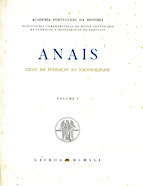

................................
From a social and overseas perspective, Fernando Castelo Branco (1970) challenges Charles Boxer’s thesis regarding the racism and slavery practiced by the Portuguese in their overseas territories, particularly against Black people. While Castelo Branco does not deny these practices, he argues that they were not exclusively directed at Black and Indigenous populations, pointing to the presence of enslaved individuals of diverse ethnicities (Black, mulatto, Caucasian, etc.) within the Portuguese Empire. This apparent disregard for skin colour, he suggests, counters accusations of racism aimed at the Portuguese. He also aims to convey a sense of unity and multi-ethnic cohesion within the overseas provinces, attributing it to the Portuguese tendency towards fraternisation and connection, as seen in studies by foreign authors, notably Gilberto Freyre's concept of luso-tropicalism.
Additionally, this series includes a form of “introspection,” presenting articles on historiography and the Academia Real da História Portuguesa (ARHP) itself. Several authors examine the work of Alexandre Herculano and other figures in historiography, analysing their impact on the field (as in the case of António Baião) or discussing the Arquivo Nacional da Torre do Tombo [Torre do Tombo National Archive] as an archival source (as in the case of António Joaquim Dias Dinis). Castelo Branco’s thesis highlights the significance of the ARHP’s contributions to subsequent studies, despite its factional focus on genealogy and a history of grand monarchical and religious achievements. The ARHP also came under historical analysis from Afonso do Paço, Fernando Castelo Branco, and Justino Teixeira Botelho, who each addressed specific aspects: Paço focused on the ARHP’s defence of archaeological heritage for cultural preservation and research, Castelo Branco on state subsidies, and Botelho on the ARHP’s colonialist aims in writing a secular and religious history of the Overseas Territories, with an emphasis on the religious component.
This work is financed by national funds through FCT - Foundation for Science and Technology, I.P, in the scope of the projects UIDB/04311/2020 and UIDP/04311/2020.
